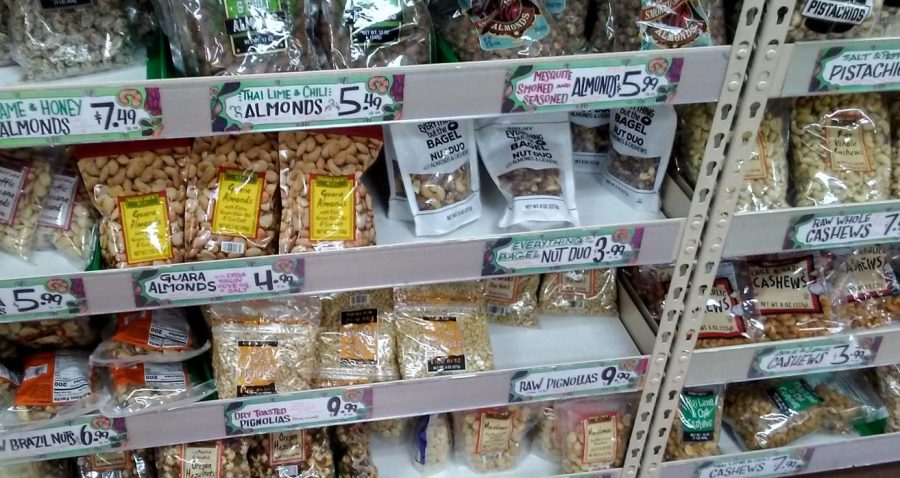As the second wave of the virus starts, people again begin to hoard. Why?
Shelves are stocked with food at a local grocery store.
November 19, 2020
Around the world, cases of Covid-19 are rising. Fearing the shelter-in-place orders experienced in March, people begin to hoard food, toiletries, and other necessities, emptying grocery store shelves.
“When I go to a grocery store I always see people buying so many things at once. I even saw someone pushing around 2 full carts,” said Marina Lee (‘22).
In Germany, for example, where the number of new cases has been increasing since October, spiking to a new high of 23,542 new cases on Friday, the demand for hygiene products and ingredients has increased.
“When one often feels out of control, we find things that we can control,” said AV support counselor Jennifer Yu. “We may not be able to control when and how long this pandemic will last, but sometimes it helps our bodies to calm down by gaining a little more control of how much supplies we have.”
The week before Germany announced their second lockdown at the end of October, people began hoarding again. According to Germany’s Federal Statistical Office, sales for toilet paper were almost 90 percent above the pre-pandemic average, and sales for disinfectants were 73 percent above average.
“We feel that in order to be safe and prepared, we need to have all the supplies we think we need—and that somehow translates to having enough toilet paper in the house. Deep down, we tell ourselves it’s better to be safe than sorry,” said Yu.
However, just because someone seems to be grabbing more than their fair share of supplies, doesn’t mean that they’re a hoarder. Oftentimes, there is more to the story.

“I have seen some people express that they are not just purchasing items for their own household but for others’ that may not be able to make it to the grocery store. We also have to keep in mind that an overfilling cart does not automatically mean they are hoarding because they may just have a larger household to supply,” said Yu.
Nonetheless, entering a grocery store aisle and finding it barren is an unsettling sight. Not only would that be unusual pre-pandemic, but it springs anxiety that one may not be able to adequately provide for themselves and their family.
Cases are only supposed to climb higher as the winter holiday season approaches. Supplies may be harder to find, but, as shown by the first wave, are eventually available. Manufacturers have learned from the first wave and now know what to expect, and have increased production and distribution.
In times of such uncertainty, it’s normal to feel anxious. Remember to follow safety guidelines and stay safe.





